The CCCJ holds many discussions, seminars, lectures and other events:
4 March 2025: Official responses to sexual violence: obstacles and opportunities
Professor Vanessa Munro (University of Warwick) and Professor Miranda Horvath (University of Suffolk) introduced by Professor Jonathan Rogers.
15 May 2024: Reason-Giving by Jury: The Korean Context
A seminar given by Dr Jinyoung Hong, Associate Professor of Law, Seoul National University.
In this talk, Dr Hong explained the challenges raised by the relatively recent adoption of trial by jury in the Republic of Korea, and examined the arguments for and against requiring juries to give reasons for their decisions, including those that have held sway in England and Wales and in the European context. Dr Hong then proposed a model for use in jury trials in the Republic of Korea.
21 November 2023: Compensating Miscarriages of Justice
A seminar given by Professor Kent Roach, Professor of Law, University of Toronto.
This talk defined the distinct but overlapping concepts of miscarriages of justice, wrongful convictions and proven innocence. The three distinct and overlapping concepts are analysed as what Guido Calabresi and Philip Bobbitt have called a 'tragic choice' approach to allocating scarce resources.
Introduction by Professor Findlay Stark, University of Cambridge.
12 July 2023: The Law Commission's Proposals on Evidence in Sexual Offence Prosecutions
This webinar involved three experts discussing aspects of the Law Commission’s Consultation Paper on Evidence in Sexual Offence Prosecutions. Dr Matt Thomason (University of Nottingham) discussed reform of the rules on the admissibility of ’sexual history evidence’, Dr Samantha Fairclough (University of Birmingham) discussed proposals regarding vulnerable witnesses and special measure directions, and Mr Paul Jarvis (6KBW) discussed proposals regarding juries and independent legal representation for complainants. This event was not recorded.
27 March 2023: Criminal Justice Conversations: Experiencing and Researching Criminal Justice
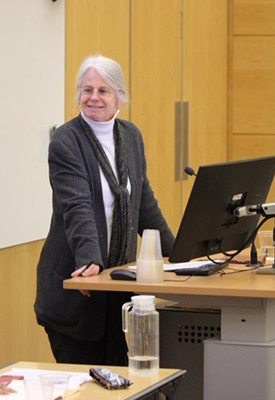 On 27 March 2023 the Cambridge Centre for Criminal Justice held a workshop in honour of Nicky Padfield entitled 'Criminal Justice Conversations: Experiencing and Researching Criminal Justice'.
On 27 March 2023 the Cambridge Centre for Criminal Justice held a workshop in honour of Nicky Padfield entitled 'Criminal Justice Conversations: Experiencing and Researching Criminal Justice'.
In September 2022, Professor Nicky Padfield formally retired from the Faculty of Law at the University of Cambridge. She has left an indelible mark, as a leading criminologist and criminal justice scholar, and former Recorder. Whilst best known for her work in sentencing, prisons and, recently, on the Parole Board, she has shown an unparalleled flexibility in teaching and research, much of which went beyond academic audiences.
This workshop, kindly supported by the Yorke Fund, will celebrate Nicky’s career and enable participants to reflect upon themes which were prevalent in her research, such as managerialism and accountability within (criminal justice) public services, and fairness and proportionality in sentencing, parole and recalls to prison. Participants will consider the gains to be made for researchers in having conversations with those who act within the criminal justice system and (too often overlooked) those who are at the receiving end of state power, and how such gains in understanding their everyday experiences may be reflected in research outputs and policy documents.
Programme of recordings
Introduction (Dr Findlay Stark, Co-Director of CCCJ, University of Cambridge); 'Telling it like it is, a talk in honour of Nicky Padfield' (Prof Em Loraine Gelsthorpe, University of Cambridge)
'Talking about private prosecutions' (Dr Jonathan Rogers, University of Cambridge)
'Some thoughts on parole' (Prof Em Sir Anthony Bottoms, University of Cambridge)
'Reflections on Criminal Justice Conversations' (Prof Em Nicky Padfield, University of Cambridge)
21 April 2022: Online webinar - Cambridge Centre for Criminal Justice Webinar: 'Contemporary Issues in Criminal Causation'
Causation is a core concept in criminal law, and yet its meaning and application continue to attract controversy in theory and practice. Recent cases including Wallace, Broughton, Field and Rebelo demonstrate the complex causal issues that continue to bedevil the courts, particularly in homicide, despite previous attempts to state potentially general principles (such as Kennedy and Hughes).
In this Cambridge Centre for Criminal Justice webinar, introduced by Dr Findlay Stark (Associate Professor, University of Cambridge) distinct perspectives on these recent developments, and the wider context in which they sit, were given by:
- Dr Jonathan Rogers, University Assistant Professor, University of Cambridge, and Co-Deputy Director of the CCCJ;
- Professor Jane Stapleton, Master of Christ’s College, Cambridge;
- Victoria Ailes, 6KBW College Hill (session not recorded);
- Nathan Rasiah QC, 23 Essex Street (session not recorded);
July 2021: Online webinar - Cambridge Centre for Criminal Justice / William Harvey Research Institute Webinar: 'The Future of the Coroner Service'
The Cambridge Centre for Criminal Justice at the University of Cambridge and the William Harvey Research Institute at Queen Mary’s University of London jointly hosted this webinar.
The focus of the webinar is the Justice Committee of the House of Commons recent report on The Coroner Service (HC 68). The Government has promised its response by July 28th – and the date for the seminar has been chosen deliberately to allow a prompt discussion of this response.
Programme
Introduction: Professor Nicola Padfield, University of Cambridge (10 minutes)
Panel One: Bereaved People and Funding the Coroner’s Service (Chaired by - Professor Andrew Harris, Senior Coroner and Professor of Coronial Law, QMU)
- Maya Sikand QC: A view from the English Bar (15 minutes)
- Professor Ian Freckelton QC: Lessons from Australia (15 minutes)
- Questions and Discussion (20 minutes)
Panel Two: Pathology Services and Preventing Future Deaths (Chaired by Professor Nikolas Lemos QMU)
- Professor Sebastian Lucas: Investing in pathology services (15 minutes)
- Professor Nicola Padfield: Following up on PFD reports (15 minutes)
- Questions and Discussions (20 minutes)
Conclusion: Professor Andrew Harris (5 minutes).
June 2021: Online webinar - Cambridge Centre for Criminal Justice / Centre for Women’s Justice webinar: 'Women Who Kill'
The research examines why women kill abusive partners and the many ways they are failed by the criminal justice system - from the failures to protect women from abuse in the first place, through to the unjust punishment of women whose actions are motivated by self preservation. The research authors will discuss the report’s findings and recommendations with key academics and practitioners, and consider its wider implications for the criminal justice response to women whose offending or alleged offending arises from their experience of domestic abuse.
Speakers
- Chair: Professor Nicola Padfield QC (Hon)
- Harriet Wistrich - Director of Centre for Women’s Justice
- Sophie Howes - Researcher and main report author
- Professor Loraine Gelsthorpe - Director and Professor of Criminology and Criminal Justice at the Institute of Criminology
- Dr Rachel Clement Tolley - John Collier Fellow and College Lecturer in Law
- Clare Wade QC - Leading criminal defence barrister
- Katy Swaine Williams - Consultant at the Centre for Women’s Justice
January 2021: Online webinar - Criminal Justice: Access, Architecture, and Aspirations in a Post Covid-19 Future
Co-chairs: Professor Nicola Padfield and Lorna Cameron
The webinar explored:
- The effects of design on access to justice through the criminal courts of England & Wales, the impact of remote access technology on the cultural heritage of the rule of law, and the design and resilience of future criminal courts.
- The experience of the pandemic in the criminal courts, how it has affected our understanding of access to justice and implications for the future of the criminal courts. Panels will discuss recent developments and the need for new research to inform future design resilience in courts.
Panelists:
- Lorna Cameron, Senior Lecturer in Interior Architecture, University of Lincoln
- Dr Penny Cooper, barrister and visiting Professor, School of Law Birkbeck, University of London
- Dr Vincent Denault, Department of Educational and Counselling Psychology, McGill University, Canada.
- Dr Alex Jeffrey, Reader in Human Geography, Cambridge University
- Dr Carolyn McKay, Senior Lecturer, The University of Sydney Law School,
- Dr Emma Rowden, Senior Lecturer in Architectural History and Theory, Oxford Brookes University.
Discussion 1 (03:05): Fair Access to Justice: Are 'access to justice' and 'effective participation' the same thing? How is access differentiated for individual needs of people attending court? How is this reflected in video-linked hearings where findings of fact are required?
Discussion 2 (32:32): Place, Placemaking and Materiality: What makes a court? How have courthouses changed? What is a democratic model for a courthouse? What do physical court spaces provide which is missing in virtual or video linked spaces? What seem to be the pros and cons of using video linked hearings?
Discussion 3 (01:01:40): Space, Thresholds and Interfaces: What tools do we have to understand how court spaces work? Are these virtual spaces ‘contested spaces’? Do we need design guide and protocols for the use of these spaces to assure fairness across all provision of video-linked spaces?
Final Discussion (01:31:20): Future Research: recommendations for future research, analysis and enquiry.
December 2020: Online webinars - The Future of 'Parole': Identifying 'problems' & 'solutions'
The Parole Board recently hit the headlines after the Government announced a Root-and-Branch Review of the parole system to explore a number of areas including potentially opening hearings up to the public. The review will build on recent reforms but will also look at more fundamental changes.
Further details: The Government has now published more details of its long-awaited “root and branch” review of the parole system. The Consultation “on making some parole hearings open to victims of crime and the wider public” acknowledged that “the question of whether to allow public hearings is only one aspect of the root and branch review which will look at four broad areas: i) an evaluation of the parole reforms to date, ii) the constitution and status of the Parole Board, iii) improving public understanding and confidence in the parole system, and iv) measures to improve openness and transparency” (para 12).
So, what does the future hold for the parole system? What are the problems faced by the current system and what are the solutions?
The Parole Board, together with the Cambridge Centre for Criminal Justice and the Institute of Criminology of the University of Cambridge, held two webinars on the topic.
First webinar (Tuesday 8 December) focused on critiques of the current system, identifying ‘problems’.
- The context of the Government’s root and branch review: Professor Nicky Padfield.
- Respondent: HH Peter Rook QC, Deputy Chair of Parole Board
- What measures actually increase public safety? Measuring ‘effectiveness’: Dr Jo Bailey, HMPPS Head of Psychology.
- Respondent: Professor Fergus McNeill
- Increasing public understanding of parole: Professor Julian Roberts.
- Respondent: Angela Cossins, Deputy Director, National Probation Service
Conclusions: Tom Hawker-Dawson
Slides
Second seminar (Wednesday 9 December) focused more on appropriate reforms, identifying 'solutions'
- A Parole Board for tomorrow: how further reform could improve the parole system: Faith Geary, Chief Operating Officer, Parole Board.
- Respondent: Simon Creighton, Bhatt Murphy, solicitors
- The relative importance of ‘transparency’, ‘independence’, ‘accountability’ and ‘public confidence’ Professor David Feldman.
- Respondent: Martin Jones, CEO, Parole Board
- Understanding the place of parole within and without a root and branch review of sentencing and of the penal system: Professor Rob Canton.
- Respondent: Professor Nick Hardwick
Conclusions: Dr Harry Annison
May/June 2020: Online webinars - 'Criminal Justice in a Pandemic'
In these two public webinars CCCJ member Professor Nicky Padfield led panels to explore the enormous additional pressures that the pandemic has imposed on the criminal justice system.
'Criminal Justice in a Pandemic: The courts'
To discuss the issues Nicky Padfield was joined by a panel of experts:
- Amanda Pinto Q.C. (Chair of The Bar Council);
- Simon Davis (President of The Law Society);
- Ian Kelcey (Criminal Solicitor Advocate); and
- Abimbola Johnson (Criminal Barrister).
'Criminal Justice in a Pandemic: The prisons'
At the beginning of April, the government announced plans for the early release of up to 4,000 prisoners in England and Wales, to reduce prison overcrowding and to slow the rate of infection among prisoners and staff. The Prison Governors Association and Public Health England argued that releasing 10,000 - 15,000 prisoners was needed. By late April, though, a mere 33 prisoners had been released. What went wrong? What has happened throughout May? What have been the implications for the welfare/health/progression of both prisoners and staff? What are the lessons to be learnt now, and for the future - within the prison and probation systems?
Nicky Padfield was joined by:
- Andrea Albutt (President, Prison Governors Association);
- Richard Garside (Director, Centre for Crime and Justice Studies);
- Laura Janes (Legal Director, Howard League for Penal Reform);
- (Retired) Judge John Samuels QC (ex-Parole Board and President, Prisoners' Education Trust); and
- Jessie Smith (Cambridge PhD candidate in Law, solicitor, formerly specialising in national security).
28 May 2018: 'A Criminalisation Conundrum: Rethinking the Wrongfulness of Deceptive Sexual Relations'
Dr Matt Gibson (Senior Lecturer, University of Liverpool)
Some people lie to get sex. The victims of these deceptions may claim their consent to sexual activity was invalid. Should such deceivers be criminalised? If so, should they be convicted of a regular sexual offence? Or should they be convicted of a distinct offence which specifically reflects their conduct? Unsurprisingly, scholars disagree on how to tackle these issues. Some claim that existing sexual offences already capture the wrongfulness of deceptive sexual relations, whilst others prefer the creation of a bespoke offence. Occasionally, some argue that deceiving someone into sexual activity should not be illegal at all. Commentators also debate whether all or just certain types of deceptions should be criminalised.
This paper develops the case for a tailored ‘deceptive sexual relations’ offence. In doing so, it suggests that such conduct is differently wrongful to that targeted by prevailing consent-based sexual crimes. For this reason, the sexual act in cases of deception is constituted differently from that which obtains in other non-consensual scenarios. If this is correct then those jurisdictions which subsume deceptive sexual relations within consent-based sexual offences are criminalising the former inaccurately. This has key implications for defendant fair labelling.
29 November 2017: 'The Friction between the Rule of Law and Law Enforcement Costs Moral Education a Fortune'
Professor Jonathan Jacobs (Professor of Philosophy and Director of the Institute of Criminal Justice Ethics at John Jay College of Criminal Justice, New York City)
A joint CCCJ/Centre for Penal Theory and Penal Ethics seminar.
Abstract:In recent decades in the U.S. (and perhaps the U.K.) there seems to be diminished recognition of the difference between the rule of law and law enforcement, with the latter seeming to displace the former. At the same time civil society is becoming less effective and trusted as a locus of moral education. As a result, people become increasingly willing to rely on criminal justice - that is, criminalisation, law enforcement, and criminal sanctions - as instruments for addressing disputed social issues.
The more that people think of the rule of law primarily in terms of law enforcement, the more they are likely to compromise their commitment to broadly liberal values and principles. Acceptance of incarceration as a routine form of social policy (along with the morally troubling form it often takes) results in large numbers of prisoners being de-skilled for civility, and ultimately released into a society that is decreasingly civil, further aggravating the situation.
6 October 2017: 'Attorney General References: Principles, Practice and Problems'
Professor Andrew Ashworth (Emeritus Vinerian Professor of English Law, University of Oxford)
A joint CCCJ/Setencing Institute event.
Abstract: Professor Andrew Ashworth (University of Oxford) will introduce a seminar discussion about the power of the Court of Appeal to increase sentences following a referral by the Attorney General under the unduly lenient sentence scheme.
The seminar discussion was preceded by a brief introduction to the newly-launched Sentencing Institute.
2 February 2017: 'Sexual Exploitation of Teenagers: Adolescent Development, Discrimination, and Consent Law'
Professor Dr. Jennifer Ann Drobac (Indiana University; Visiting Fellow, Clare Hall)
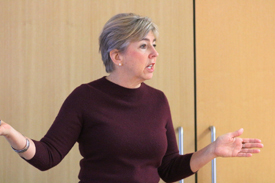 A joint CCCJ/Cambridge Socio-legal Group event.
A joint CCCJ/Cambridge Socio-legal Group event.
Abstract: When we consider the concept of sexual abuse and harassment, our minds tend to jump either towards adults caught in unhealthy relationships or criminals who take advantage of children. But the millions of maturing teenagers who also deal with sexual harassment can fall between the cracks.
When it comes to sexual relationships, adolescents pose a particular problem. Few teenagers possess all of the emotional and intellectual tools needed to navigate these threats, including the all too real advances made by supervisors, teachers, and mentors. In “Sexual Exploitation of Teenagers”, Jennifer Drobac explores the shockingly common problem of maturing adolescents who are harassed and exploited by adults in their lives. Reviewing the neuroscience and psychosocial evidence of adolescent development, she explains why teens are so vulnerable to adult harassers. Even today, in an age of increasing public awareness, criminal and civil law regarding the sexual abuse of minors remains tragically inept and irregular from state to state in the U.S. Drobac uses six recent cases of teens suffering sexual harassment to illuminate the flaws and contradictions of this system, skillfully showing how our current laws fail to protect youths, and offering an array of imaginative legal reforms that could achieve increased justice for adolescent victims of sexual coercion.
11 October 2016: 'The Sentence of the Court: Civil Liberties at Stake'
Louis Blom-Cooper QC
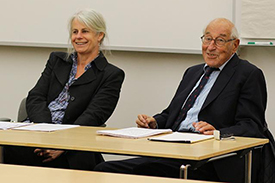 Abstract: In England and Wales, the sentencing of offenders is recognisably lawless – except for the limited guidance given copiously by the Sentencing Council to judges, and the attempt by Parliament in the Criminal Justice Act 2003 to steer the sentencer through an intolerable thicket of powers of public intervention. Judicial pronouncements of deterrence and retribution in the process of sentencing sustain the view that the prevailing aim of sentencing is punishment; but punishment should play no part in a civilised penal system. A loss of civil liberties – those fundamental freedoms that form part of the international human rights law – suffices to uphold a sound system of sentencing of those convicted of crime. Sentencing is about the enforcement of the criminal law and the need for fairness to those involved.
Abstract: In England and Wales, the sentencing of offenders is recognisably lawless – except for the limited guidance given copiously by the Sentencing Council to judges, and the attempt by Parliament in the Criminal Justice Act 2003 to steer the sentencer through an intolerable thicket of powers of public intervention. Judicial pronouncements of deterrence and retribution in the process of sentencing sustain the view that the prevailing aim of sentencing is punishment; but punishment should play no part in a civilised penal system. A loss of civil liberties – those fundamental freedoms that form part of the international human rights law – suffices to uphold a sound system of sentencing of those convicted of crime. Sentencing is about the enforcement of the criminal law and the need for fairness to those involved.
An album of photographs is available from this event.
27 April 2016: Debating Jogee and Ruddock
 Dr Matt Dyson (Trinity College, Cambridge)
Dr Matt Dyson (Trinity College, Cambridge)
Nick McBride (Pembroke College, Cambridge)
Abstract: Jogee and Ruddock (2016) is the most significant judgment in the field of criminal law in the last decade (if not longer). In this debate, Matthew Dyson (Trinity) will speak in support of the Supreme Court/Privy Council’s decision, whilst Nick McBride (Pembroke) will speak against it.
25 April 2016: The Implementation of Sentencing in a Culture of Reintegration
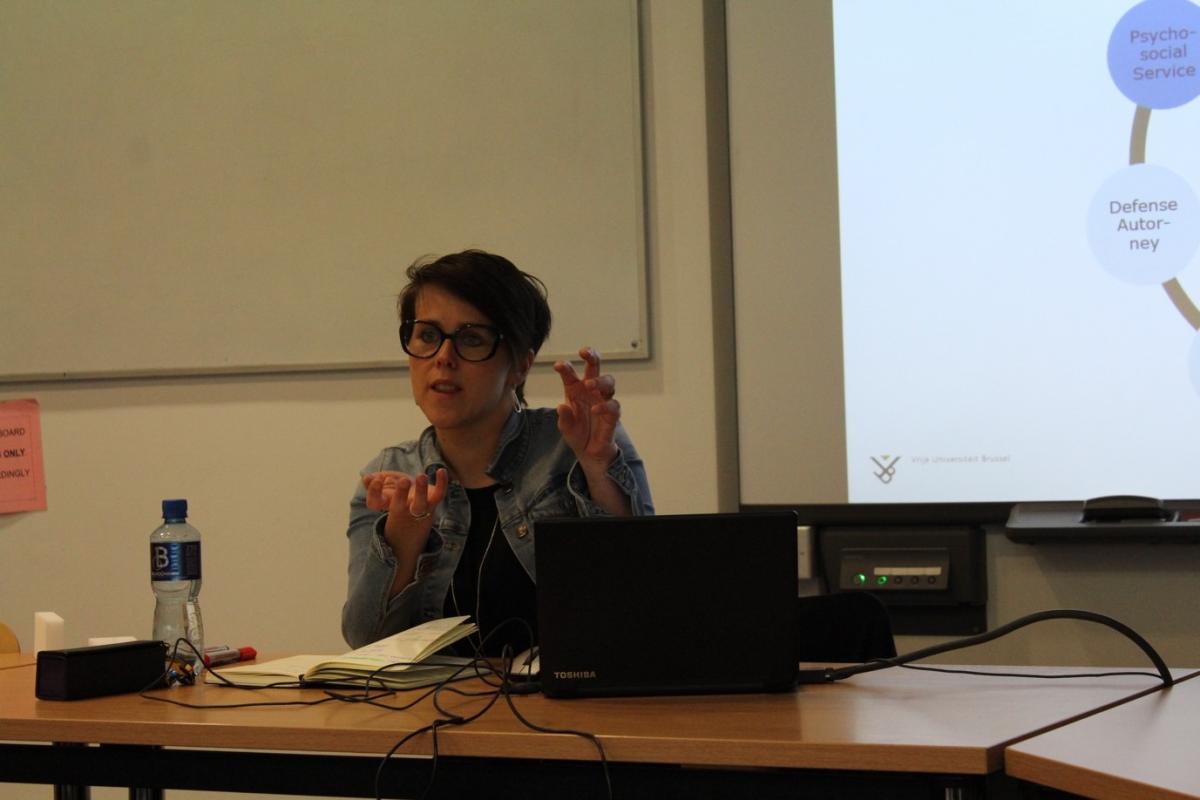 Dr Veerle Schiers (Assistant Professor and Postdoctoral Researcher, Research Group Crime & Society (CRiS), Department of Criminology, Vrije Universiteit Brussel)
Dr Veerle Schiers (Assistant Professor and Postdoctoral Researcher, Research Group Crime & Society (CRiS), Department of Criminology, Vrije Universiteit Brussel)
Abstract: A decade ago, the Belgian early release system underwent fundamental changes. Important innovations were the transfer of decision-making authority to release ‘long-term’ prisoners before the end of their sentences from the executive to the judiciary and a strong focus on offenders’ procedural and substantive statutory rights (e.g. due process, fairness, legitimacy). As a result, since 1 February 2007, multidisciplinary sentence implementation courts have decided the detention trajectory of offenders sentenced to three years’ imprisonment or more (e.g. semi-detention, electronic monitoring, conditional release) after an adversarial and inquisitorial procedure in which important procedural and substantive statutory rights of the offender are guaranteed. In this context, social reintegration is highlighted as an official aim and key concept of sentence implementation.
This paper will address the following themes: (a) Belgian sentence implementation as a bifurcated practice; (b) whether Belgian sentence implementation courts ‘are doing reintegration’, drawing on the results of a four-year ethnographic study examining the decision-making processes and practices of these tribunals; (c) how recall decisions are made in Belgium. The nature of the decision-making process will be related to the particular reintegration-oriented penal culture in which the decisions are made.
9 Feb 2016: Is Europe “Unprepared”? EU Counter-terrorism Policies to Address Foreign Fighters and Returnees
 Dr Francesca Galli (Assistant Professor, Faculty of Law, University of Maastricht)
Dr Francesca Galli (Assistant Professor, Faculty of Law, University of Maastricht)
Abstract: EU governments have created a complex framework to cooperate in the fight against terrorism. This includes the adoption of a counter-terrorism strategy in 2005, which aims at ensuring the even and cohesive implementation of counter-terrorism policy (rather than a crisis-driven response), and the appointment of a “counter-terrorism co-ordinator”. Yet a common refrain after the most recent attacks was “Europe is still unprepared”. This paper asks whether Europe is really unprepared–from a policy perspective–and, if so, what could be done to address this issue. The main challenge in managing the risk of further terrorist attacks is reconciling: (i) prevention and repression means of combatting terrorism; and (ii) soft law measures aimed at de-radicalisation, together with general administrative and criminal law rules. A new, reconciled approach is enshrined in the UN SC RES 2178; will the EU follow the same path in the end?
1 Feb 2016: Reconstructing the Law of Voyeurism and Exhibitionism
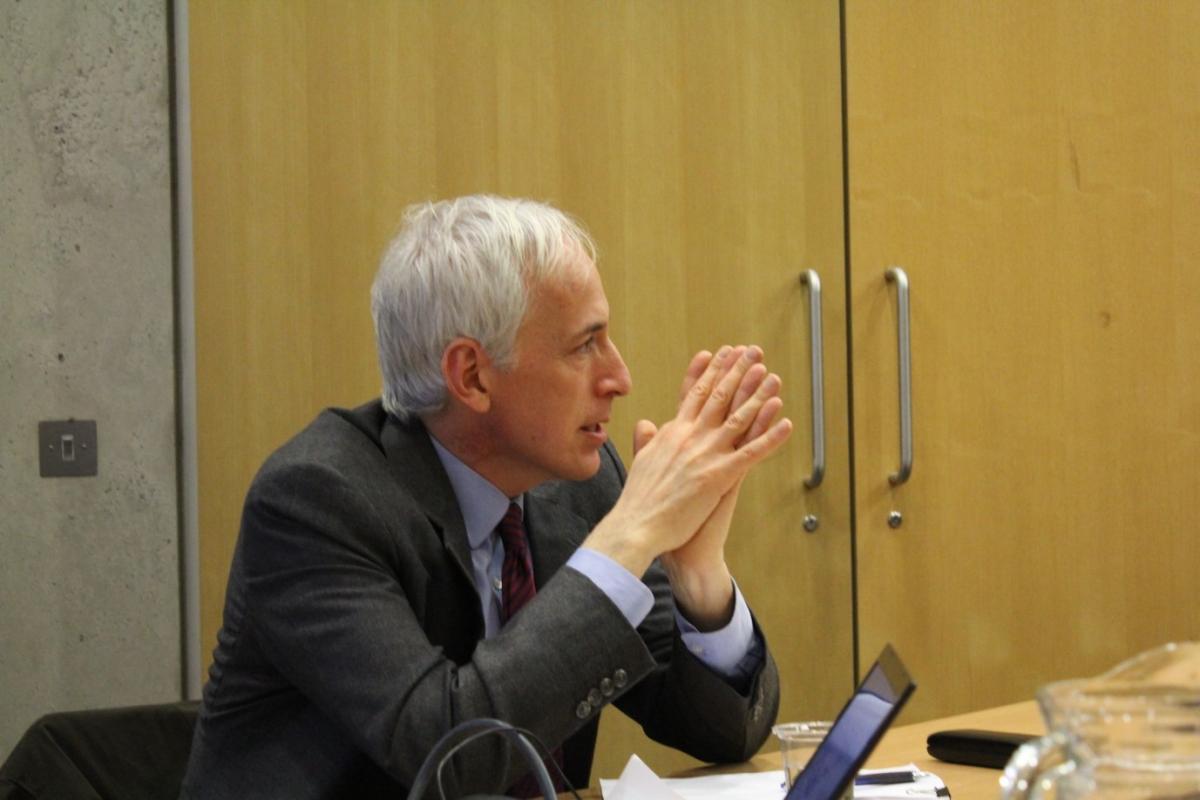 Professor Stuart P. Green (Distinguished Professor of Law and Nathan L. Jacobs Scholar, Rutgers School of Law)
Professor Stuart P. Green (Distinguished Professor of Law and Nathan L. Jacobs Scholar, Rutgers School of Law)
Abstract: Although the incidence of voyeurism and exhibitionism (or indecent exposure) is relatively low compared to other sexual offenses, both crimes raise important questions about issues such as the proper scope of the criminal law in a liberal society, the resolution of competing rights to sexual autonomy, and the nature of privacy rights in our digital age. This article (part of a much larger book-length project titled Criminalizing Sex) will consider four conceptual puzzles raised by the law of voyeurism and exhibitionism, concerning wrongfulness, harmfulness, offensiveness, and potential defenses.


 Twitter
Twitter Email
Email